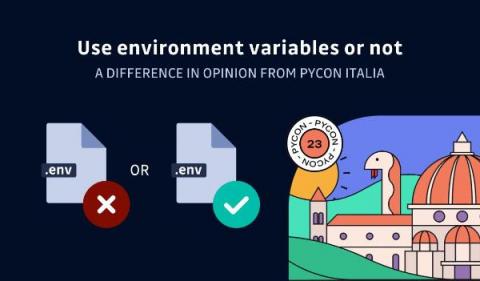Security | Threat Detection | Cyberattacks | DevSecOps | Compliance
Git
Exploring the Controversy: The Pros and Cons of Environment Variables - PyCon Italia
Using environment variables to store secrets has long been considered a good practice. But in this article, we will explore different opinions as to why using env vars might be either good or bad for security.
The Art of Protecting Secrets: Eight Essential Concepts for SecOps Practitioners
Secrets management is an art, and mastering it requires a deep understanding of security protocols, meticulous attention to detail, and a proactive approach to staying ahead of threats. In this blog, we present you with eight essential concepts to enhance your credential management strategy.
Using 1Password Service Accounts with GitHub actions
Cloud Threats Memo: A Recent Campaign Exploiting Digital Trust Through Github
The weaponization of digital trust involves exploiting an application or tool we use in our daily digital life to perform our business or personal tasks for malicious purposes. It is a technique increasingly used by the threat actors to carry out malicious actions such as the delivery of malware or links to phishing pages.
Platform Engineering: Building Your Developer Portal with Backstage (Pt 1)
Build a developer portal from scratch with Backstage, an open platform. In this tutorial, learn how to create a secure-by-default software catalog for bootstrapping GitHub projects.
Research with Snyk and Redhunt Labs: Scanning the top 1000 orgs on GitHub
Open source code is a vital aspect of modern development. It allows developers to increase their application’s functionality, while reducing overall development time. However, the system isn’t perfect. The nature of third party software and it’s dependencies often creates opportunity for security vulnerabilities to lurk in libraries and downloads.
Is secrets management a solved problem? Panel discussion
Company News: Key hires for the executive team and a selection in the French Tech 2030 program.
GitGuardian has made strategic executive hires and been selected for the French Tech 2030 program, positioning the company for growth and advancement in cybersecurity and code security solutions.
How Your Secrets Management Maturity Can Impact Your DevOps Research and Assessment Metrics
Learn how your secrets management can affect your DevOps performance, measured by DORA metrics, as well as increase your risk as an organization.











